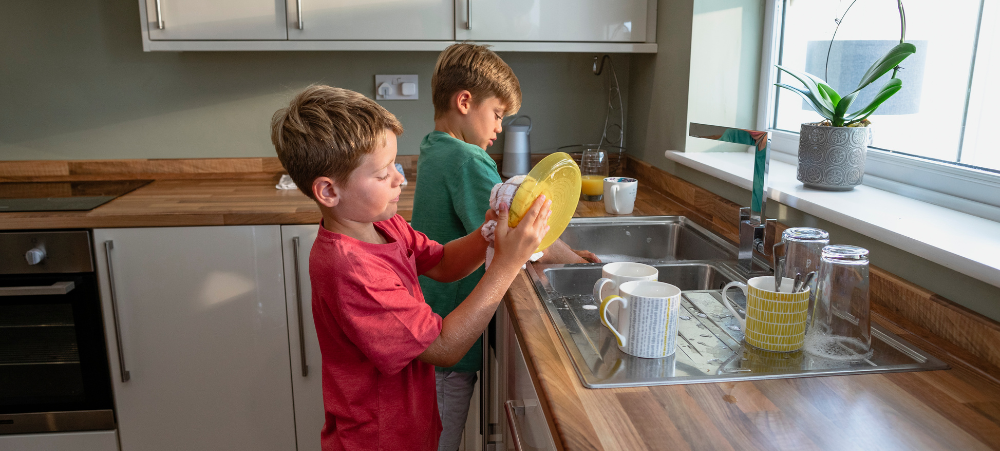To a child, chores might look like just another thing grown-ups make them do. But to a parent, they’re a powerful opportunity to teach life skills that go far beyond clean floors and folded laundry.
When you involve children in chores — from toddlerhood through the tween years — you’re not only lightening your load. You’re nurturing responsibility, resilience, independence, and even self-worth.
🎯 Why Chores Matter
Studies show that children who regularly do chores tend to:
- Perform better academically
- Have better relationships with family and peers
- Show higher levels of self-esteem and empathy
In fact, a decades-long Harvard Grant Study found that one of the best predictors of success in adulthood is whether a child did chores growing up.
“By involving children in chores, we’re teaching them that they’re part of a team and that their contributions matter,” says developmental psychologist Dr. Deborah Gilboa.
🧠 The Hidden Lessons Behind Chores
- Responsibility: “This is my job, and it has to get done.”
- Time management: Learning to fit tasks into their day.
- Teamwork: Contributing to a shared home environment.
- Confidence: Mastering a task, however small, builds pride.
- Work ethic: Learning that not all rewards are instant.
👶 Age-Appropriate Chores (That Actually Work)
Each stage of development brings different capabilities. Here’s a simple guide to age-appropriate chores:
👧 Toddlers (Ages 2–3)
Let’s build the habit — not perfection!
- Put toys away in bins
- Wipe spills with cloth
- Help feed pets
- Put clothes in laundry basket
- Carry small, unbreakable dishes to sink
✨ Tip: Sing a cleanup song to make it fun and routine.
🧒 Preschoolers (Ages 4–5)
Growing independence and simple responsibility.
- Match socks or sort laundry by colour
- Make their bed (loosely is fine!)
- Water plants
- Set the table
- Help put groceries away
✨ Tip: Use picture charts for visual reminders.
🧑 Early Primary (Ages 6–8)
They’re ready for more structure and pride in their work.
- Vacuum or sweep small areas
- Pack their own school bag/lunch
- Dust furniture
- Fold laundry
- Take out recycling
- Help prepare simple meals (with supervision)
✨ Tip: Assign a “chore of the week” so responsibilities rotate and stay fresh.
🧒🏽 Tweens (Ages 9–12)
Time to step up with real contribution.
- Load/unload dishwasher
- Do laundry start to finish
- Babysit younger siblings briefly
- Clean bathroom or kitchen surfaces
- Mow lawn or rake leaves
- Cook a meal with a recipe
✨ Tip: Connect chores with life skills. “You’re learning how to take care of yourself!”
💬 Should Kids Get Paid for Chores?
This is a hot topic. Some parents choose to give pocket money tied to chores, while others treat chores as unpaid contributions to family life.
A balanced approach:
- Daily tasks = unpaid (part of being in the family)
- Extra jobs = can earn money (like washing the car or cleaning out the garage)
Whatever your approach, consistency and follow-through are more important than the reward.
Sources:
- Harvard Grant Study on adult success: The Harvard Study of Adult Development
- American Academy of Child & Adolescent Psychiatry: aacap.org
- Zero to Three: zerotothree.org
We understand that there are many aspects that encompass a Mother, Father or Child and strive toward providing resources and services that accommodates this.
Our content is aimed to inform and educate families on issues starting from pregnancy through to the challenges of the teen-age years.
- Say Hello to the Ultimate Holiday Brunch Bite - December 17, 2025
- Tiny Toons Looniversity Returns: Meet the Voice Behind Plucky and Hamton! - December 12, 2025
- From Pain to Possibility: Panado®’s New Marketing Campaign, Highlights The Joy Of Pain Relief - December 10, 2025





